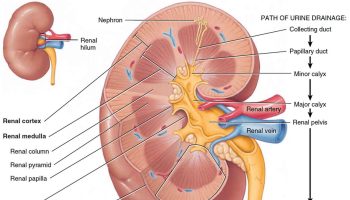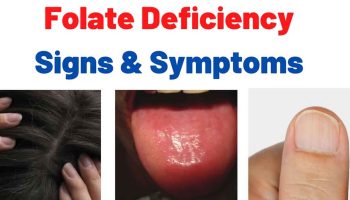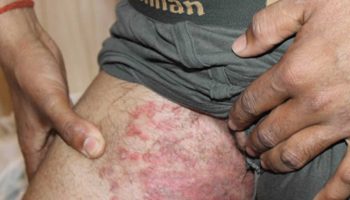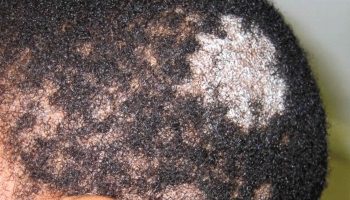Contents
Bad breath
Bad breath (halitosis) is a common problem that can affect anyone at any age. About one in four people are thought to have bad breath on a regular basis. There are many reasons why you might have bad breath. You can get it if you don’t brush and floss regularly. Bacteria that build up in your mouth and between your teeth produce the bad odor.
The most common cause of bad breath is tiny food particles trapped in your teeth and mouth. When the natural bacteria in your mouth break down these tiny bits of food, a foul smelling gas is released. This causes bad breath. Good oral hygiene helps prevent bad breath.
Certain medical conditions can also cause bad breath. Other factors causing bad breath include strong-flavored foods, such as garlic and onion, and smoking.
Other problems in your mouth, such as gum disease, dry mouth, or cavities, may also cause bad breath. Sinusitis or problems with your nose may be to blame. You can also have bad breath if you eat some foods, like raw onions, garlic, or cabbage. And of course smoking causes its own bad smell. Some diseases and medicines can cause a specific breath odor.
Other medical conditions that can cause bad breath include diabetes and lung, throat, or nose infections – for example, bronchiectasis, bronchitis, tonsillitis, and sinusitis.
The best way to get rid of bad breath is to floss regularly, clean your teeth twice a day (including your tounge) and drink plenty of water. Mouthwashes, mints or chewing gum may make your breath fresher. If you have a disease that causes the bad breath, treating the disease may help give you fresher breath.
How can you tell if you have bad breath?
It can be hard to know if you have halitosis, because it’s difficult to judge whether your own breath smells normal or not. You can try breathing out through your mouth into your cupped hands and immediately breathing in through your nose, or licking the outside of your hand or wrist, waiting a few seconds, then smelling where you licked.
A close friend or relative may be able to judge far more accurately than you can whether your breath is bad or not. However, most people don’t like to comment on other people’s breath, in case they seem rude.
It is possible to believe you have halitosis, even when your breath actually smells normal. This is a kind of mental health issue called halitophobia.
If you are concerned about your breath, it may be best to ask your dentist or doctor to assess you for halitosis. Although it may feel awkward asking the question, getting a professional opinion and finding out what you can do about the problem may help you feel better.
What causes bad breath
There are quite a few different causes of bad breath, ranging from simple oral hygiene issues, to health conditions that need medical or dental attention. Some causes are transient (passing relatively quickly), while others are ongoing.
Most bad breath originates in the mouth. The usual cause is the breakdown of food particles by bacteria. This process of breakdown is exactly the same as the process that causes food to ‘go off’. This is known as putrefaction. Most people’s mouths contain large numbers of bacteria, especially in dental plaque, the substance that builds up on, and between, teeth that are not cleaned regularly. The crevices in the surface of the tongue can also contain odour-causing bacteria.
Causes of transient (temporary) bad breath
Lots of people experience bad breath from time to time, which they find passes after a little while. Common causes of transient bad breath include:
- smoking
- drinking alcohol
- eating certain foods – such as those high in garlic, onion or spices
- sleeping – saliva helps keep your mouth clean and when you sleep you produce less saliva, so you can get bad breath after sleeping (especially if you breathe
- through your mouth – mouth breathing – rather than your nose).
Causes of bad breath inside the mouth
In many cases of bad breath, the cause is a problem inside the mouth. Such problems include:
- trapped food – when tiny bits of food are trapped in the teeth, gums and tongue, they are broken down by bacteria that produce foul-smelling chemicals, especially ‘volatile sulphur compounds’ like hydrogen sulphide
- gum disease (periodontal disease) – caused when a sticky film of bacteria (plaque) builds up between your teeth and gums
- mouth infections – unhealed wounds, tooth cavities (caries), abscesses, and other sores in the mouth like ulcers
- salivary gland problems – if your salivary glands don’t produce enough saliva, this can cause a dry mouth (xerostomia), which can cause bad breath.
While most bad breath is caused by problems inside the mouth, it is possible to have bad breath caused by a problem in another part of the body.
Such problems include:
- ongoing infections in the nose or throat
- ongoing tonsillitis or tonsil stones (small lumps of bacteria and debris that form on the tonsils)
- infections or chronic inflammation in the nose, sinuses or throat, which can contribute to postnasal drip, also can cause bad breath.
- sinusitis, or post-nasal drip (the drainage of mucus secretions from the nose or sinuses down the back of the throat)
- infections of the lungs and airways
- gastroesophageal reflux disease (GERD)
- diseases, such as some cancers and conditions such as metabolic disorders, can cause a distinctive breath odor as a result of chemicals they produce.
- severe kidney disease causing uraemia (a build-up of wastes that are normally removed by the kidney in the blood)
- hepatic encephalopathy (a condition when the liver is unable to remove toxins from the blood).
Other causes
Bad breath may also be caused by:
- fasting – this can lead to ketoacidosis, a condition that develops when fat in the body breaks down and releases chemicals called ketones
- medications – some medicines when they break down in the body release chemicals that cause your breath to smell; others can cause a dry mouth (xerostomia).
Some types of medication can also cause bad breath. These include:
- nitrates – these are sometimes used to treat angina, chest pain caused by a restriction in the blood supply to the heart
- some chemotherapy medication
- tranquillizers (phenothiazines)
If the medication you’re taking is causing bad breath, your doctot may be able to recommend an alternative.
What makes bad breath worse?
Anything that increases the number of odor-producing bacteria in the mouth can make halitosis worse. For example:
- not cleaning your teeth daily – this includes flossing as well as brushing
- wearing dentures that don’t fit properly or aren’t cleaned regularly
- allowing your mouth to get dry – this can happen if you don’t drink enough water, or you breathe through your mouth instead of your nose (‘mouth-breathing’).
Sometimes foods that contain certain oils, such as garlic, onions and spices, will produce bad breath, but only on a temporary basis until the food is eliminated from your body. Dieters may have bad breath because of changes in their metabolism.
Some bad breath originates in the nose, throat and respiratory passages. For example, sinus infections, postnasal drip and respiratory infections can lead to bad breath.
Smokers, and those taking certain drugs, may have bad breath. Sometimes, people with diseases of the liver or kidney, complications of diabetes or digestive problems have unpleasant breath as a result, but this is not common.
How do you prevent bad breath?
There are some simple things you can do to help prevent halitosis.
- Brush your teeth and tongue thoroughly at least twice a day, using a soft-bristled toothbrush and a fluoride-containing toothpaste, paying particular attention to the areas where the teeth meet the gums. This prevents plaque building up and removes the tiny food particles that would otherwise collect in the mouth and start to smell.
- Clean between your teeth at least once a day, using dental floss or a small inter-dental brush (available from chemists and supermarkets). This helps remove plaque from places where your toothbrush can’t reach. You can also use a tongue scraper to clean the back of the tongue.
- If you wear dentures or other dental appliances, make sure you clean these thoroughly every day.
- Avoid eating too many sugary foods and drinks, which encourage bacterial growth in the mouth, and are also a cause of tooth erosion.
- Stop your mouth from getting too dry by drinking plenty of water and chewing healthy foods like carrots and apples that encourage your saliva to flow.
- See a dentist regularly to help prevent problems with your teeth and gums.
- If you are a smoker, consider quitting. Not only does it make your breath smell bad, it also stains your teeth and makes you more likely to get gum disease.
Although some mouthwashes (such as those containing chlorhexidine) may help with bad breath on an occasional or short-term basis, they can cause problems if used long-term, such as staining your teeth and fillings, and are no substitute for good dental hygiene.
Bad breath diagnosis
To diagnose halitosis, your doctor will take a history to determine whether there may be causes within your mouth, or whether there are symptoms of a condition elsewhere in the body which may be contributing to your bad breath. It is important to discuss all medications you are taking even those bought over the counter or herbal reparations. The doctor will then take a look in your mouth and may do a simple smell test that involves comparing the odor of the breath that comes out of your mouth with the breath that comes out of your nose. If bad breath is coming only from your mouth, this suggests that the cause is probably inside the mouth, while bad breath coming only from your nose suggests the cause may be inside the nose or sinuses. If bad breath is coming from both your nose and mouth, the cause may be further inside the body.
Bad breath treatment
How to get rid of bad breath
Treatment for halitosis depends on the cause. In some cases, improving your oral hygiene – brushing and flossing more regularly, for example – is all that needs to be done. However, if you have a problem with your teeth or gums, you may need to see a dentist.
As well as professionally cleaning your teeth, dentists can provide any necessary dental treatment, such as a filling if there is tooth decay. They can also advise you on things you can do yourself at home, like use toothpastes or mouthwashes designed to kill bacteria in the mouth.
If you have had your mouth checked by a dentist and find you still have persistent bad breath, see your doctor. Depending on the suspected cause, they may refer you to a specialist who can further investigate the issue.
Home remedies for bad breath
Taking good care of your teeth and gums on a daily basis can help reduce dental problems you might have in the future.
Below are some useful dental and mouth care tips:
- Maintain a good standard of oral hygiene. Brush your teeth using a fluoride toothpaste twice a day to remove plaque – brush your teeth for at least two minutes in the morning before breakfast and last thing at night before you go to bed.
- It doesn’t matter whether you use an electric or manual toothbrush. They’re both equally good as long as you brush with them properly. However, some people find it easier to clean their teeth thoroughly with an electric toothbrush.
- Replace your toothbrush or toothbrush head every three months.
- Floss daily between your teeth to remove plaque. Flossing isn’t just for dislodging food wedged between your teeth. Regular flossing may also reduce gum disease and bad breath by removing plaque that forms along the gum line.
- Drink plenty of fluids to avoid dehydration.
- Avoid too many sweet foods and sugary drinks. Where possible limit them to mealtimes.
- Avoid drinking too much coffee or alcohol.
- Have regular dental check ups. Your dentist can advice you how often you need a check-up, as it depends on factors such as your age, general health and dental history.
- Antibacterial mouthwashes (available from your pharmacist) may also help fight plaque and bacteria. Talk to your dentist first to see if mouthwash is right for you.
- Chew sugar-free gum to encourage the flow of saliva in your mouth.
- To keep your breath fresh, try to limit the amount of alcohol, garlic, onions, curries and strong-flavored fish in your diet.
- Clean dentures or dental appliances. If you wear a bridge or a denture, clean it thoroughly at least once a day or as directed by your dentist. If you have a dental retainer or mouth guard, clean it each time before you put it in your mouth. Your dentist can recommend the best cleaning product.
- If you smoke, try to cut down or quit.
If you develop halitosis (bad breath) that doesn’t go away with good oral hygiene, make an appointment with your doctor or dentist to get advice on managing the problem.
Fresh breath tips
To help keep your breath fresh, you should:
- give up smoking
- eat a healthy, balanced diet and avoid eating strongly flavoured or spicy food
- cut down on sugary food and drink as it can increase the amount of bacteria in your mouth
- reduce your alcohol consumption
- cut down on coffee
- drink plenty of water to help prevent your mouth becoming dry
- chew sugar-free gum after eating to stimulate the flow of saliva – this will help clean away any remaining food particles
You should visit your dentist for regular check-ups. Having regular dental check-ups will ensure any plaque and calculus – previously known as tartar – is removed from your teeth, particularly in areas that are difficult to reach.
Your dentist can recommend the best way to clean your teeth and gums, and point out areas you might be missing. They can also identify any signs of gum disease and ensure early treatment.
Cleaning dentures
If you wear dentures, you should take them out at night to give your mouth a chance to rest. Clean your dentures thoroughly before putting them in the next morning:
- don’t use toothpaste to clean your dentures as it can scratch the surface and cause stains
- clean your dentures thoroughly using soap and lukewarm water, denture cream, or a denture-cleaning tablet
- use a separate toothbrush to clean your dentures
Your dentures should stay clean and fresh if you follow this routine. It will also help prevent the build-up of plaque, which can cause bad breath.





